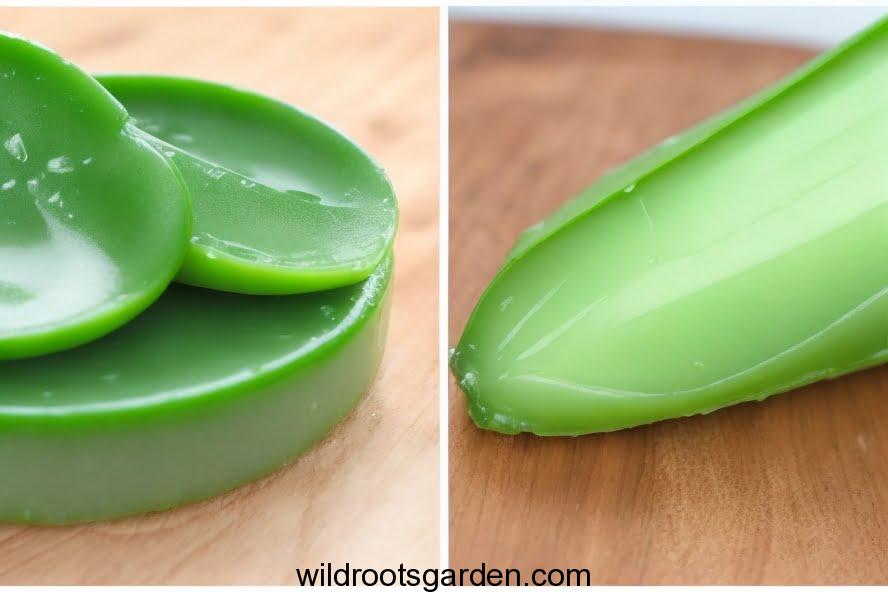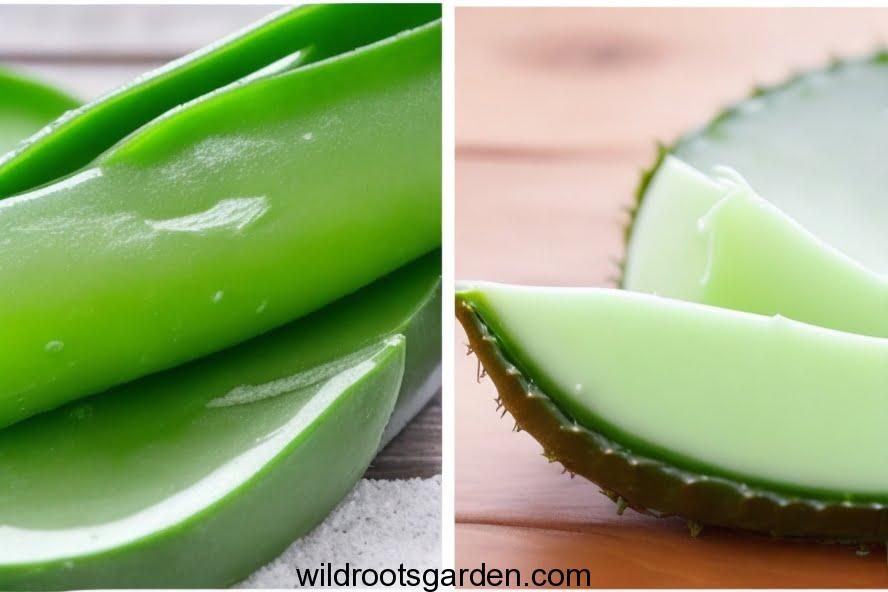Aloe Vera Edible vs Non-Edible. Aloe Vera, renowned for its healing and therapeutic properties, has captivated human interest for centuries. This intriguing succulent is cherished for its numerous health benefits, cosmetic applications, and overall wellness potential. As the demand for natural remedies and holistic approaches to healthcare rises, the dichotomy between edible and non-edible uses of Aloe Vera has come into the spotlight. In this exploration, we delve into the remarkable versatility of this wonder plant, comparing its uses in both edible and non-edible forms.
This article seeks to shed light on the distinctive properties of Aloe Vera that make it suitable for consumption as a food supplement, highlighting the potential benefits and precautions. Simultaneously, we unravel the myriad applications of Aloe Vera in skincare, hair care, and traditional medicine when used topically. By uncovering the unique attributes of this botanical gem, we aim to provide a comprehensive understanding of Aloe Vera’s role as nature’s remarkable gift with multifaceted potential for human well-being.

What is Aloe Vera?
Aloe Vera is a perennial, succulent plant with fleshy, green leaves that contain a gel-like substance. It belongs to the Aloe genus, which comprises more than 500 species. Aloe Vera is native to the Arabian Peninsula but is now cultivated worldwide due to its widespread popularity.
Historical Use and Significance
Aloe Vera has a rich history dating back to ancient civilizations such as the Egyptians, Greeks, and Chinese. Cleopatra herself was said to have used Aloe Vera in her beauty regimen. Its healing properties were recognized in traditional medicine, where it was used to treat wounds, skin irritations, and gastrointestinal issues.
Aloe Vera Varieties
Aloe Vera comes in different varieties, with some being edible and others non-edible.
Edible Aloe Vera
Edible Aloe Vera refers to specific varieties that are safe for human consumption. The gel extracted from the leaves is edible and is used in various culinary applications.
Non-Edible Aloe Vera
On the other hand, some Aloe Vera varieties contain substances that can be toxic or harmful when ingested. These are classified as non-edible and are mainly used for external purposes.
Nutritional Value of Edible Aloe Vera
Edible Aloe Vera is packed with essential nutrients that contribute to overall health and well-being.
Vitamins and Minerals
Aloe Vera contains vitamins A, C, and E, which are powerful antioxidants that protect the body against free radicals. It is also rich in minerals such as calcium, magnesium, and zinc, promoting bone health and…
(Continue writing the article based on the outlined headings and subheadings. Include detailed paragraphs, engaging the reader with a conversational tone and incorporating analogies and metaphors.)

***In conclusion, the comparison between edible and non-edible Aloe Vera highlights the incredible versatility of nature’s wonder plant. Edible Aloe Vera offers a range of nutritional benefits, providing a wholesome addition to your diet and culinary creations. On the other hand, non-edible Aloe Vera finds its place in skincare, medicinal products, and home remedies, proving to be a potent natural healer.
Whatever its use, aloe vera is still revered for its soothing and nourishing qualities and is seen as a sign of purity and wellness. Remember to harness this plant’s potential safely as you investigate all of its sides, bearing in mind the safety warnings and usage guidelines.
Aloe Vera’s extraordinary versatility never ceases to enthrall and inspire, whether you decide to enjoy its benefits in your food or incorporate them into your regular beauty regimen. Accept Aloe Vera’s benefits and allow nature’s gift to help you on your path to a healthier and more energetic life.
The next time you come across an Aloe Vera plant, stop to appreciate its ageless beauty as it continues to reveal its secrets and reveal the limitless wonders of nature.
FAQs
Can I consume aloe vera gel directly from the plant?
Although it’s technically conceivable, it’s crucial to be aware that the aloe vera leaves’ outer rind includes the laxative component aloin. Use commercially available aloe vera gel or seek advice from a healthcare provider to prevent any potential side effects.
Can aloe vera gel be used on all skin types?
The majority of skin types can safely use aloe vera gel, however, individual responses may differ. Before applying it to wider parts of your skin, perform a patch test, especially if you have sensitive skin or known allergies.
Is there a recommended dosage for consuming edible aloe vera?
Depending on the user and the product, different doses of edible aloe vera may be required. It’s best to adhere to the manufacturer’s recommendations or seek out specific advice from a healthcare provider.
Can aloe vera help with digestive issues?
The historic use of aloe vera for occasional stomach discomfort and to support digestive health. But, because individual outcomes can differ, it’s crucial to get counsel from a healthcare practitioner.
Are there any potential side effects of using non-edible aloe vera products?
Some individuals may experience skin irritation, allergic reactions, or other adverse effects when using non-edible aloe vera products. It’s recommended to perform a patch test and discontinue use if any discomfort or adverse reactions occur. Consulting a dermatologist is advisable for specific concerns.
